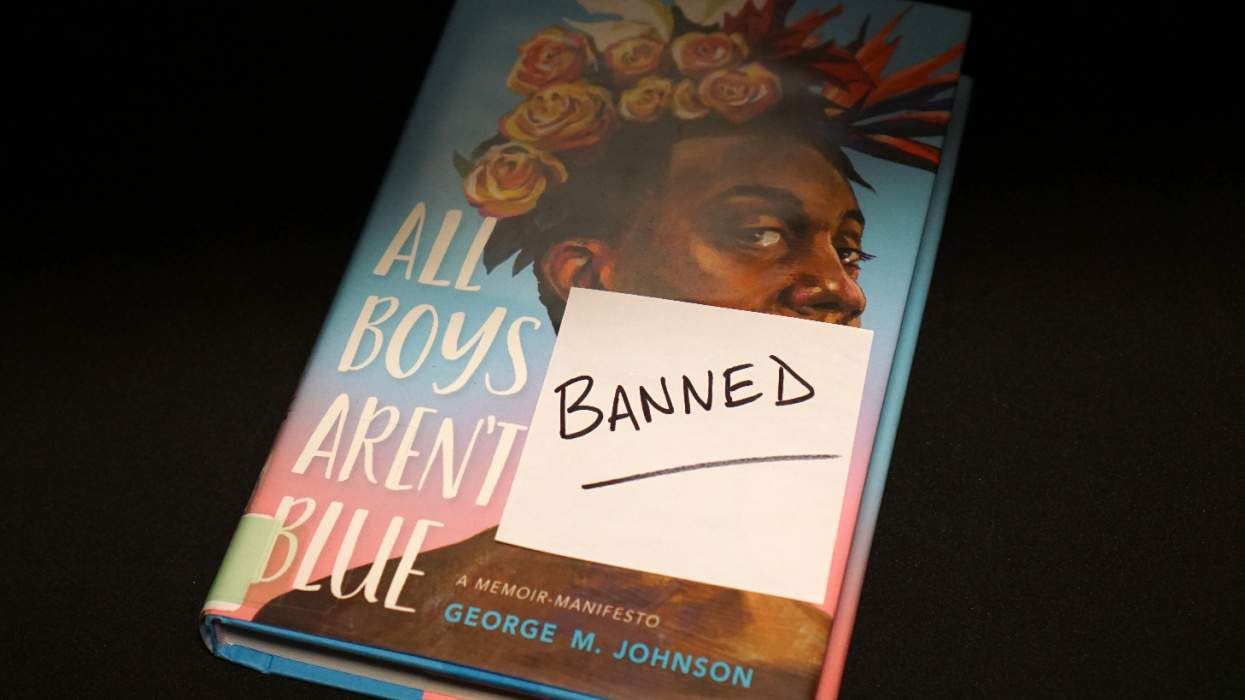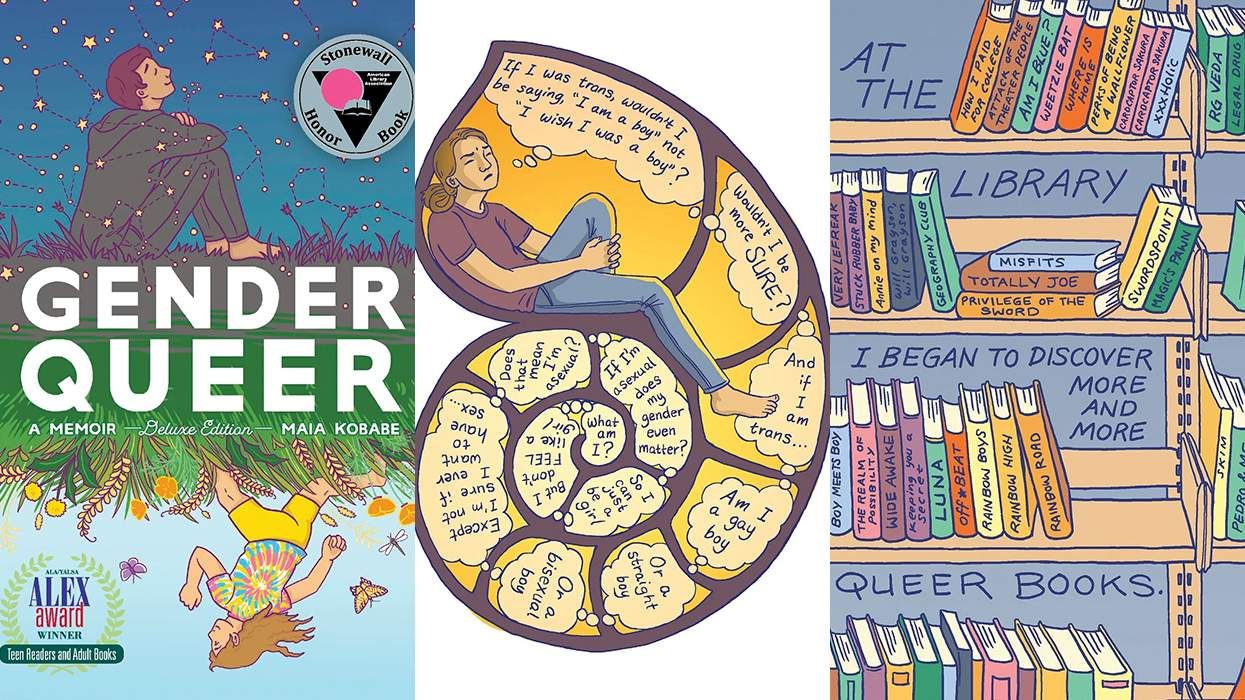In this new series, we ask LGBT-identified authors to talk one-on-one about their work and their worlds. In this first one, Malaysia-born, Singapore-raised, California-based writer Justin Chin -- the award-winning author of seven books, including the recently released 98 Wounds (Manic D) -- talks with his fellow San Franciscan Daphne Gottlieb, the woman known for stitching together the ivory tower and the gutter just using her tongue. Gottlieb is the author and editor of nine books, most recently the poetry collection 15 Ways to Stay Alive (Manic D), as well as co-editor (with Lisa Kester) of the forthcoming Dear Dawn: Aileen Wuornos in Her Own Words (Soft Skull). The duo gets existential chatting about queer poetry, manga, failure, and tiny alphabet revolutions.
Justin Chin: So, how's the whole writing thing treating you these days?
Daphne Gottlieb:15 Ways to Stay Alive, my newest book of poetry, came out last April, so I'm happily coasting on my laurels. And Dear Dawn: Aileen Wuornos in her own Words, which I co-edited with Lisa Kester, should be out this spring.
Chin: After nine books, what's changed? Does it get better?
Gottlieb: What's changed after all this? I think that I have less conviction than ever that poetry matters -- that poetry changes or saves anything or anyone. But, in fact, that's tremendously freeing. If it doesn't matter much, the stakes are lower and you can't really fail. It's insurrection. It's a tiny alphabet revolution. A secret. A psalm.
Chin: But if it doesn't matter much, if it's failed before it begins, why keep doing it? Why continue? I've been tussling with that question myself. I have such a small readership that whether I do it or not, the sum difference is probably the same. But like you said, it is freeing, I can do whatever the heck I want, no one expects anything. It never is about getting the biggest audience, but getting the audience that you want. Good lord, what happened to us? We used to be so full of zesty optimism, piping over with something like hope.
Gottlieb: I think that hope is the act of continuing in the face of the truth. So despite what your words might say, Justin, your actions are quite hopeful.
Chin: Hmmm. Hope sounds a hell of a lot like foolishness or bullheadedness or petulant rebelliousness. And yeah, I suppose my actions are a mush of all that.
Gottlieb: So tell me about your new book.
Chin: The new book is called 98 Wounds. It's a collection of short fiction. I say fiction, but it's more like "fiction-adjacent." After all the poetry, and essays and memoir, fiction seemed like the next logical progression. But it's the sort of fiction with roots and tendrils in poetics and in the essay.
Gottlieb: I'm excited to read your new one and a little embarrassed that I haven't yet.
Chin: A lot of people haven't. Hence, small readership, ta-dah! So, what's on your desk?
Gottlieb: A motorcycle half-helmet. Some cardboard. A pair of sunglasses. Not much writing. I go through periods of not writing. Until there's something I can't find in the world that I need, so I write. That's point of writing: building what you need, right? Until I'm writing again, I'll be running away from tear gas and working with the homeless. Maybe that's the difference that you were asking about before. When I was younger, I went around yelling that the sky was falling. Now I'm still yelling, but I have some scotch tape, too. It's not that strong, but it's something. What's happened for you?
Chin: You were never just a yeller, m'dear. Our lives have never been divorced or set apart from our art. When we were younger, we felt we could hold up the sky, we felt we had the means and the power to kick the sky back into place, to remake the sky in accordance to our desires and our ideals. Sometimes it worked, most other times, not so much. Later, we learned how to brace ourselves, bear the brunt of that falling sky. And even later we learned to survive the fallen sky, walk on its shards, pick up, carry on and expect the next falling, armed with new strategies to unfall the sky. The periods of not writing for me are always filled with reading, which is a major part of writing, so it's not not writing. Other than that, the body slows down, health and energies and gastrointestinal tract aren't as robust and peppy as before. The vim lessens, I'm sad to admit.
Gottlieb: It's true. I am a quart down on vim. So what are you reading?
Chin: A weird pile of anything and everything. I'm loving the mangas Twin Spica and The Kurosagi Corpse Delivery Service (number 11 was so satisfying). Re-reading a lot. Uncle Scrooge and Donald Duck comics. Aleksandar Hemon. Rebecca Solnit, and Eliot Weinberger, in awe. Rebecca Brown, over and over in greater awe. Books written by my pals. I'm open to any recommendations from my friends. It's kind of sad, instead of some hunky dude in my bed, I sleep with a pile of books. And you?
Gottlieb: By "reading" I think you mean the stack of books next to my bed that I'm making very little headway with because I'm playing Words With Friends. On top is Jonathan Safran Foer's Tree of Codes. What could be better than a book that someone's cut all sorts of words out of? The plot, literally, is full of holes.
Chin: Oh, aren't all books full of holes? Never trust a book that claims to be whole. Maybe not so much holes but a sieve, an unbleached filter. I went through a poet-as-prophet phase a while back, haven't quite given up on that yet actually. Isn't it funny how we can find so much to hold on to, to fortify and find restoration with, in the books we read and re-read, yet we ourselves cannot believe that our own work can possibly in some small -- or not so small --way do the same for someone else somewhere in this great wide world?
Gottlieb: See, we've come back around where we started -- to that not-giving-up thing. It doesn't seem to matter what we think we know. We keep going on, regardless. There's nowhere else to go.
Chin: Also, it's what I've chosen to give meaning to my life. So I only got myself to blame, damn it.















